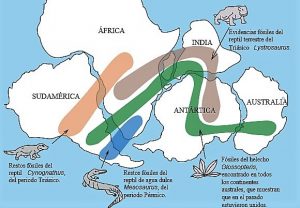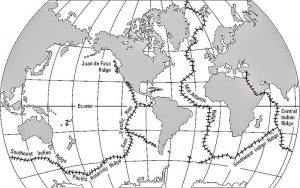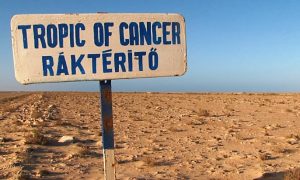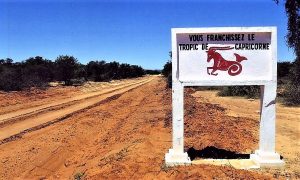Archipelago
An archipelago is the set of islands that have its origin from a large amount of magma waste that has been left after a series of volcanic eruptions that happened in the prehistoric era, when the earth was still a very unstable planet and was in constant formation. Archipelagos cannot be called rock formations because they are actually a small fertile territory, only that they are segmented in the sea and divided into islands and islets.
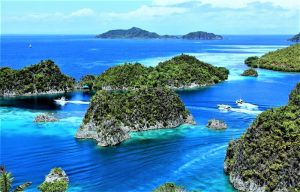
Related topics
Island, islet
What is an archipelago?
An archipelago is a numerous group of islands close to each other that are grouped in a certain surface more or less extensive that is located in the sea.
Etymology
The word archipelago comes from the Italian archipelago, which comes from the Greek word αρχιπέλαγος (arkhipélagos), composed of ἀρχι– (arkhi), which means main, and πέλαγος (pélagos), which means ocean.
Archipelago characteristics
The main characteristics of the archipelagos are as follows:
- They can arise or originate from tectonic movements, erosion and sedimentation.
- They are groups of islands that are located in the sea and have relatively short distances between each other.
- In ancient times the word archipelago was used to give the name to the Aegean Sea.
- The islands that make up an archipelago have a common geological origin.
- They are characterized by high temperatures and trade winds blowing from the northeast.
- The rainy season generally begins in May and it may last until December.
- It records approximately 80% of rainfall per year.
- It can be affected by hurricanes due to its geographical position.
- Those that are in the tropical line of the planet are used as tourist destinations, because their beaches are exotic and small.
- Islands like Japan are huge archipelagos that have arisen as a result of volcanic eruptions.
Types of archipelago
Depending then on the geological origin of the archipelagos, the islands of the archipelagos can be oceanic or continental islands, and, therefore, the archipelagos receive the same classification as the islands:
- The oceanic archipelagos are thus composed of groups of islands that do not belong to a particular continental tectonic plate, but are of volcanic origin, and their formation occurs with greater speed. An example is the Hawaiian archipelago.
- Continental archipelagos are land masses of continental islands formed by continental fragments that have been separated from the continent by the movement of tectonic plates and other geological Examples are the archipelagos of the Balearic Islands, Greenland and the British Isles.
Formation
Archipelagos generally originate from volcanic activities associated with large magma eruptions. They can also be the result of erosion or soil deposition processes.
Synonyms
The archipelagos can also be known by other names, among them are:
- Islands: these are lands that are completely covered by water and their entire surface is at the same height above sea level.
- Islets: are small islands in which human beings do not live and which belong to a certain country.
- Reefs: they are rocks or sandbanks under the surface of the water and are the best known are coral reefs and calcareous algae.
- Cays: are small islands with shallow beaches that form on the surface of a coral reef. They are mainly in tropical
Examples of archipelago
Some of the most important archipelagos around the world are the following:
- Galapagos Archipelago: located to the west of mainland Ecuador, it is made up of three major and six minor islands. Its largest island is called Isabela. It was declared a World Heritage Site in 1978. Its main source of income is eco-tourism and there is a large amount of flora and fauna.
- Canary Islands Archipelago: located in the Atlantic Ocean is part of the tropical region of Macaronesia and its climate is temperate all year round. Its orography is due to volcanic eruptions and all its islands have basic services.
- Juan Fernández Archipelago: includes the islands of Santa Clara, Alejandro Selkirk and Robinson Crusoe. It can be reached by sea or land. It is considered a lost paradise and its islands are of volcanic origin. The main activity of the archipelago is tourism.
- Antilles Archipelago: It has the shape of an arch and extends from the Florida peninsula to the Venezuelan It is formed by the Bahamas, Greater Antilles and Lesser Antilles. They have a tropical climate, a flora typical of the inter tropical zone and little fauna.
- Las Aves Archipelago: Located on the northern coast of Venezuela is made up of two groups of reefs called Aves de Sotavento and Barlovento. Its fauna is extensive, mainly birds, although the lack of fresh water impedes the growth of some animals.
How to cite this article?
Briceño V., Gabriela. (2019). Archipelago. Recovered on 3 January, 2025, de Euston96: https://www.euston96.com/en/archipelago/



